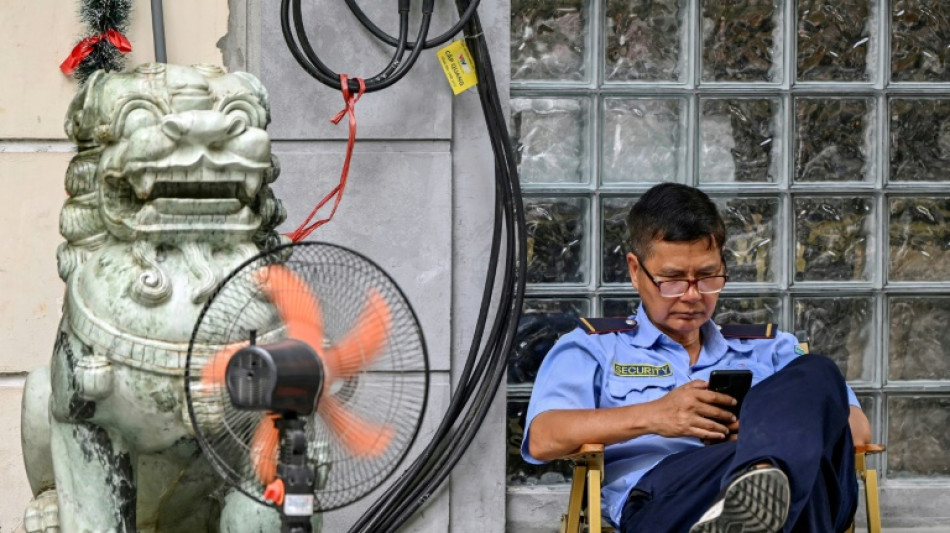
-
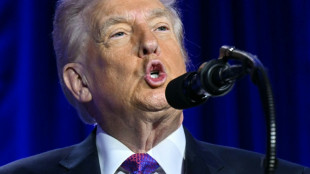 Trump refuses to apologize for racist clip of Obamas as monkeys
Trump refuses to apologize for racist clip of Obamas as monkeys
-
Takaichi talks tough on immigration on eve of vote

-
 England's Salt passed fit for T20 World Cup opener
England's Salt passed fit for T20 World Cup opener
-
Spain, Portugal brace for fresh storm after flood deaths

-
 Pakistan bowl out Netherlands for 147 in T20 World Cup opener
Pakistan bowl out Netherlands for 147 in T20 World Cup opener
-
Pushed to margins, women vanish from Bangladesh's political arena

-
 Crypto firm accidentally sends $40 bn in bitcoin to users
Crypto firm accidentally sends $40 bn in bitcoin to users
-
Pistons end Knicks' NBA winning streak, Celtics edge Heat

-
 Funerals for victims of suicide blast at Islamabad mosque that killed at least 31
Funerals for victims of suicide blast at Islamabad mosque that killed at least 31
-
A tale of two villages: Cambodians lament Thailand's border gains

-
 Police identify suspect in disappearance of Australian boy
Police identify suspect in disappearance of Australian boy
-
Cuba adopts urgent measures to address energy crisis: minister

-
 Not-so-American football: the Super Bowl's overseas stars
Not-so-American football: the Super Bowl's overseas stars
-
Trump says US talks with Iran 'very good,' more negotiations expected

-
 Trump administration re-approves twice-banned pesticide
Trump administration re-approves twice-banned pesticide
-
Hisatsune leads Matsuyama at Phoenix Open as Scheffler makes cut

-
 Beyond the QBs: 5 Super Bowl players to watch
Beyond the QBs: 5 Super Bowl players to watch
-
Grass v artificial turf: Super Bowl players speak out

-
 Police warn Sydney protesters ahead of Israeli president's visit
Police warn Sydney protesters ahead of Israeli president's visit
-
Bolivia wants closer US ties, without alienating China: minister

-
 Ex-MLB outfielder Puig guilty in federal sports betting case
Ex-MLB outfielder Puig guilty in federal sports betting case
-
Milan-Cortina Winter Olympics open with dazzling ceremony

-
 China overturns death sentence for Canadian in drug case
China overturns death sentence for Canadian in drug case
-
Trump reinstates commercial fishing in protected Atlantic waters

-
 Man Utd can't rush manager choice: Carrick
Man Utd can't rush manager choice: Carrick
-
Leeds boost survival bid with win over relegation rivals Forest

-
 Stars, Clydesdales and an AI beef jostle for Super Bowl ad glory
Stars, Clydesdales and an AI beef jostle for Super Bowl ad glory
-
Dow surges above 50,000 for first time as US stocks regain mojo

-
 Freeski star Gu says injuries hit confidence as she targets Olympic treble
Freeski star Gu says injuries hit confidence as she targets Olympic treble
-
UK police search properties in Mandelson probe
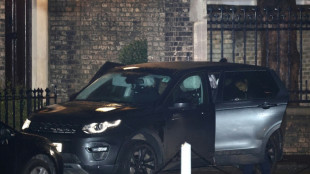
-
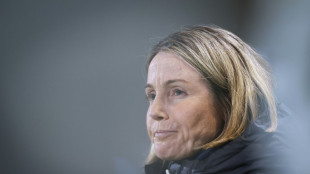 Bompastor extends contract as Chelsea Women's boss despite slump
Bompastor extends contract as Chelsea Women's boss despite slump
-
Milan-Cortina Winter Olympics open with glittering ceremony
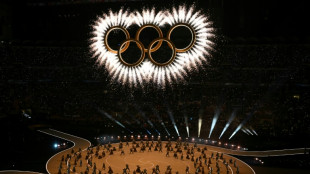
-
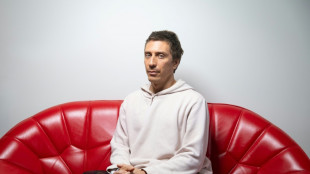 A French yoga teacher's 'hell' in a Venezuelan jail
A French yoga teacher's 'hell' in a Venezuelan jail
-
England's Underhill taking nothing for granted against Wales

-
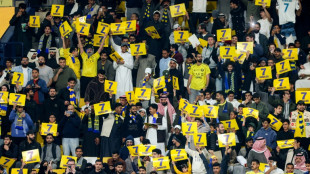 Fans cheer for absent Ronaldo as Saudi row deepens
Fans cheer for absent Ronaldo as Saudi row deepens
-
Violence-ridden Haiti in limbo as transitional council wraps up
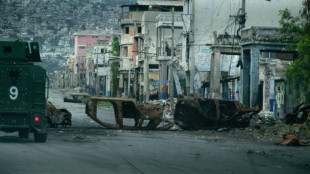
-
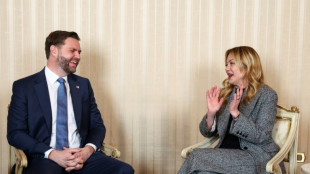 Hundreds protest in Milan ahead of Winter Olympics
Hundreds protest in Milan ahead of Winter Olympics
-
Suspect in murder of Colombian footballer Escobar killed in Mexico
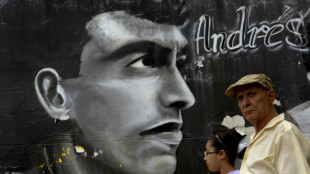
-
 Colombia's Rodriguez signs with MLS Minnesota United
Colombia's Rodriguez signs with MLS Minnesota United
-
Wainwright says England game still 'huge occasion' despite Welsh woes
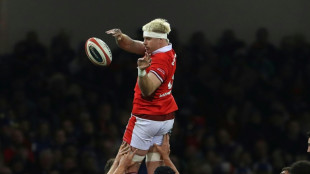
-
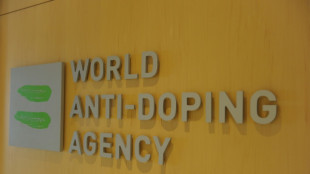 WADA shrugs off USA withholding dues
WADA shrugs off USA withholding dues
-
France detects Russia-linked Epstein smear attempt against Macron
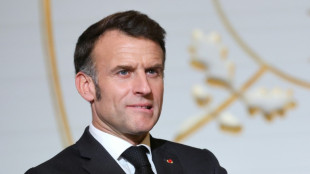
-
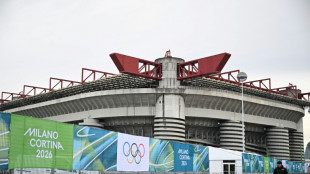 Winter Olympics to open with star-studded ceremony
Winter Olympics to open with star-studded ceremony
-
Trump posts, then deletes, racist clip of Obamas as monkeys
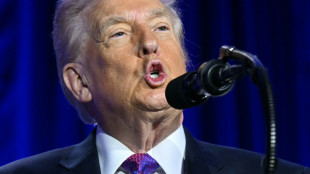
-
 Danone expands recall of infant formula batches in Europe
Danone expands recall of infant formula batches in Europe
-
Trump deletes racist video post of Obamas as monkeys
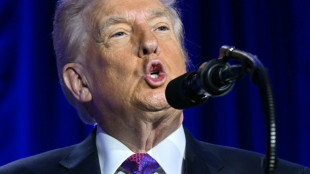
-
 Colombia's Rodriguez signs with MLS side Minnesota United
Colombia's Rodriguez signs with MLS side Minnesota United
-
UK police probing Mandelson after Epstein revelations search properties
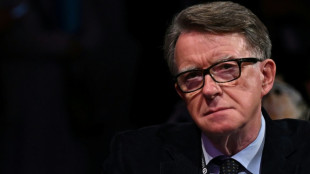
-
 Russian drone hits Ukrainian animal shelter
Russian drone hits Ukrainian animal shelter
-
US says new nuclear deal should include China, accuses Beijing of secret tests
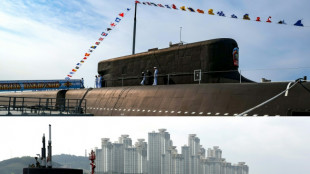

'Draconian' Vietnam internet law heightens free speech fears
Social media users in Vietnam on platforms including Facebook and TikTok will need to verify their identities as part of strict new internet regulations that critics say further undermine freedom of expression in the communist country.
The law, which comes into force on Christmas Day, will compel tech giants operating in Vietnam to store user data, provide it to authorities on request, and remove content the government regards as "illegal" within 24 hours.
Decree 147, as it is known, builds on a 2018 cybersecurity law that was sharply criticised by the United States, European Union and internet freedom advocates who said it mimics China's repressive censorship of the internet.
Vietnam's hardline administration generally moves swiftly to stamp out dissent and arrest critics, especially those who find an audience on social media.
In October, blogger Duong Van Thai -- who had almost 120,000 followers on YouTube, where he regularly recorded livestreams critical of the government -- was jailed for 12 years on charges of publishing anti-state information.
Months earlier, leading independent journalist Huy Duc, the author of one of the most popular blogs in Vietnam -- which took aim at the government on issues including media control and corruption -- was arrested.
His posts "violated interests of the state", authorities said.
Critics say that decree 147 will also expose dissidents who post anonymously to the risk of arrest.
"Many people work quietly but effectively in advancing the universal values of human rights," Ho Chi Minh City-based blogger and rights activist Nguyen Hoang Vi told AFP.
She warned that the new decree "may encourage self-censorship, where people avoid expressing dissenting views to protect their safety -- ultimately harming the overall development of democratic values" in the country.
Le Quang Tu Do, of the Ministry of Information and Communications (MIC), told state media that decree 147 would "regulate behaviour in order to maintain social order, national security, and national sovereignty in cyberspace".
- Game over -
Aside from the ramifications for social media firms, the new laws also include curbs on gaming for under-18s, designed to prevent addiction.
Game publishers are expected to enforce a time limit of an hour per game session and not more than 180 minutes a day for all games.
Nguyen Minh Hieu, a 17-year-old high school student in Hanoi who admits he's addicted to gaming, told AFP that the new restrictions would be "really tough" to follow -- and to enforce.
Games are "designed to be addictive" he said. "We often spend hours and hours playing match after match."
Just over half of Vietnam's 100 million population regularly plays such games, says data research firm Newzoo.
A large proportion of the population is also on social media, with the MIC estimating the country has around 65 million Facebook users, 60 million on YouTube and 20 million on TikTok.
Under the new laws, these tech titans -- along with all "foreign organisations, enterprises and individuals" -- must verify users' accounts via their phone numbers or Vietnamese identification numbers, and store that information alongside their full name and date of birth.
They should provide it on demand to the MIC or the powerful ministry of public security.
The decree also says that only verified accounts can livestream, impacting the exploding number of people earning a living through social commerce on sites such as TikTok.
Neither Facebook parent company Meta, YouTube owner Google, nor TikTok replied to requests for comment from AFP.
Human Rights Watch is calling on the government to repeal the "draconian" new decree, which the campaign group said threatens access to information and freedom of expression.
"Vietnam's new Decree 147 and its other cybersecurity laws neither protect the public from any genuine security concerns nor respect fundamental human rights," said Patricia Gossman, its associate Asia director.
"Because the Vietnamese police treat any criticism of the Communist Party of Vietnam as a national security matter, this decree will provide them with yet another tool to suppress dissent."
Y.Shaath--SF-PST



